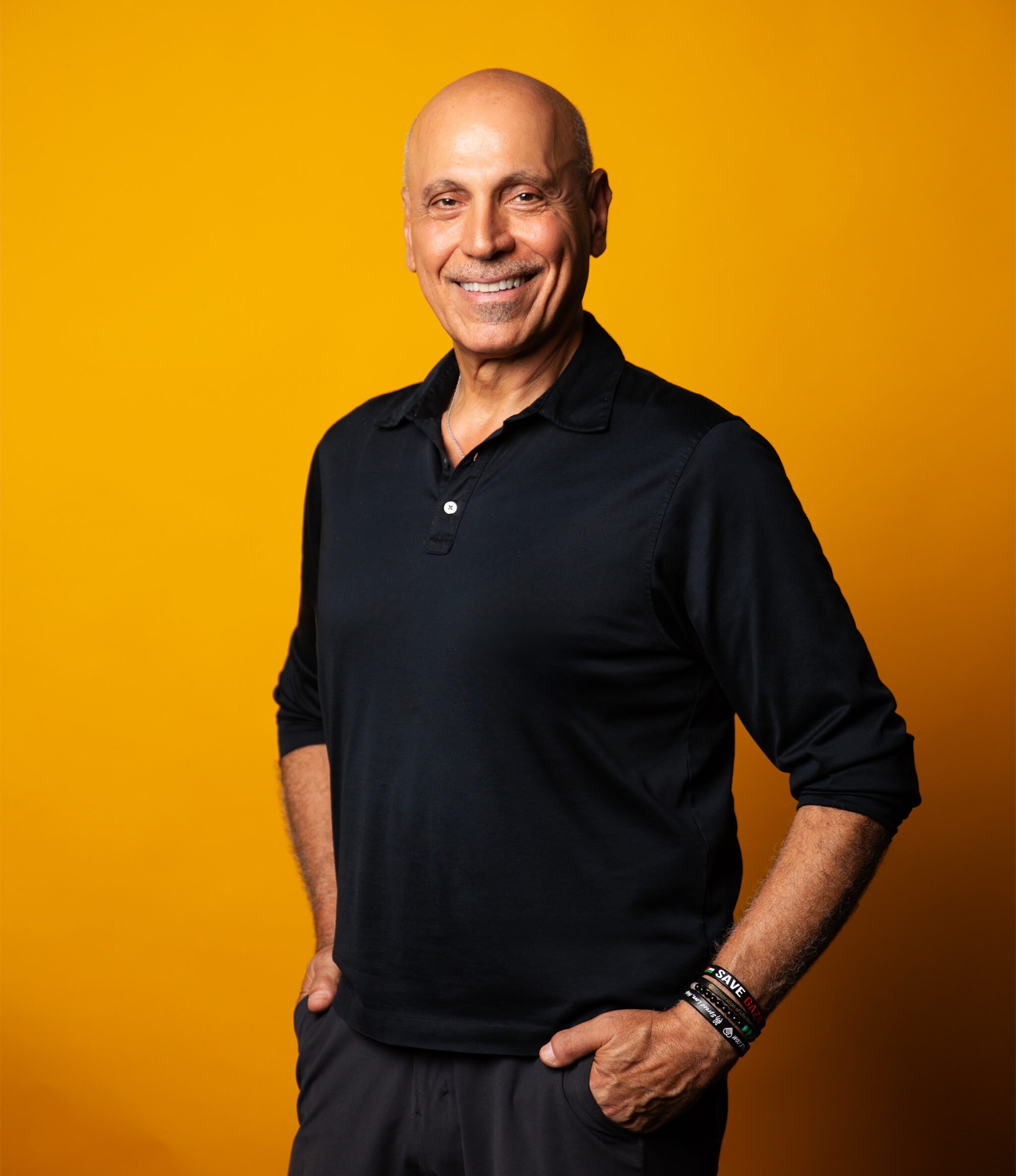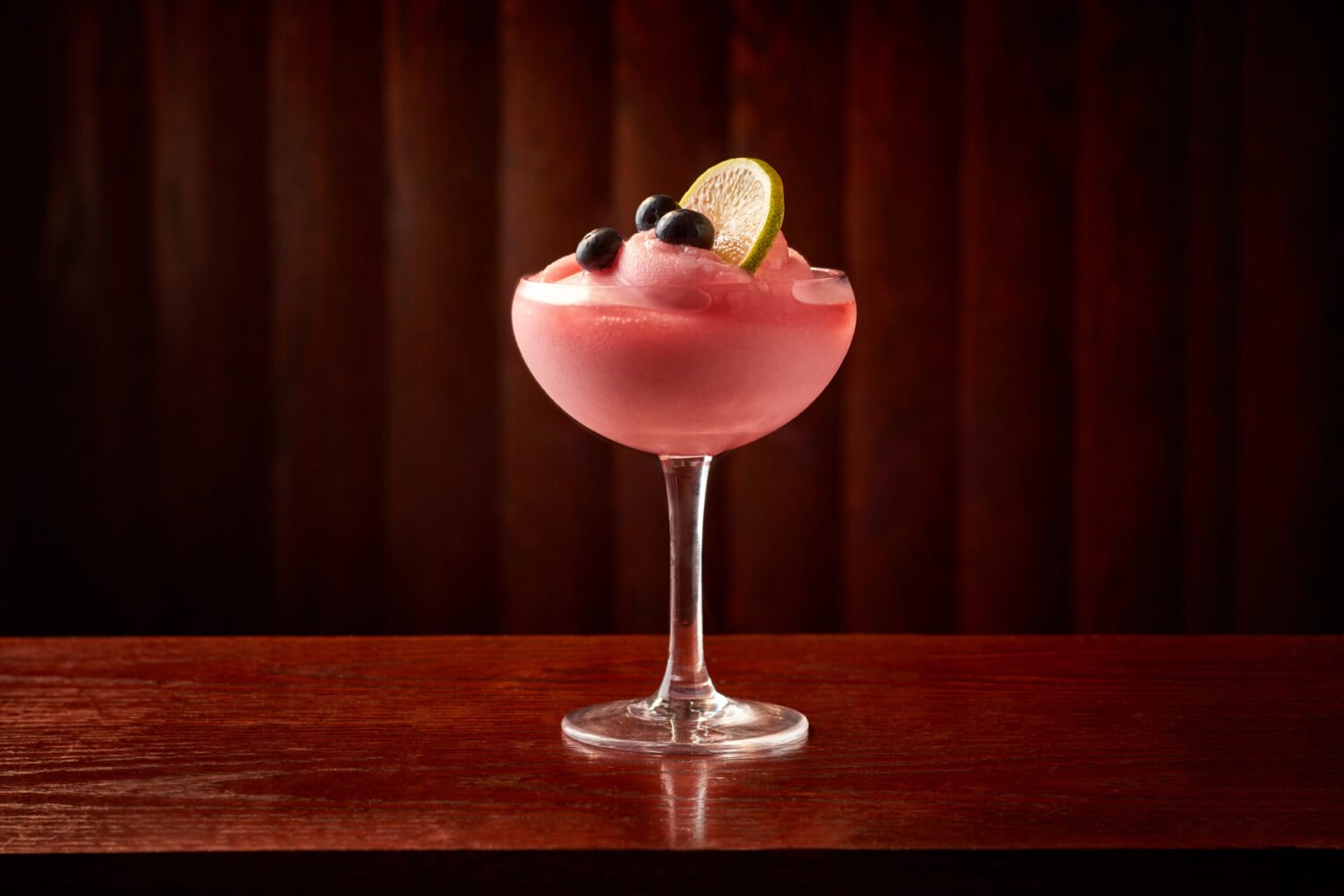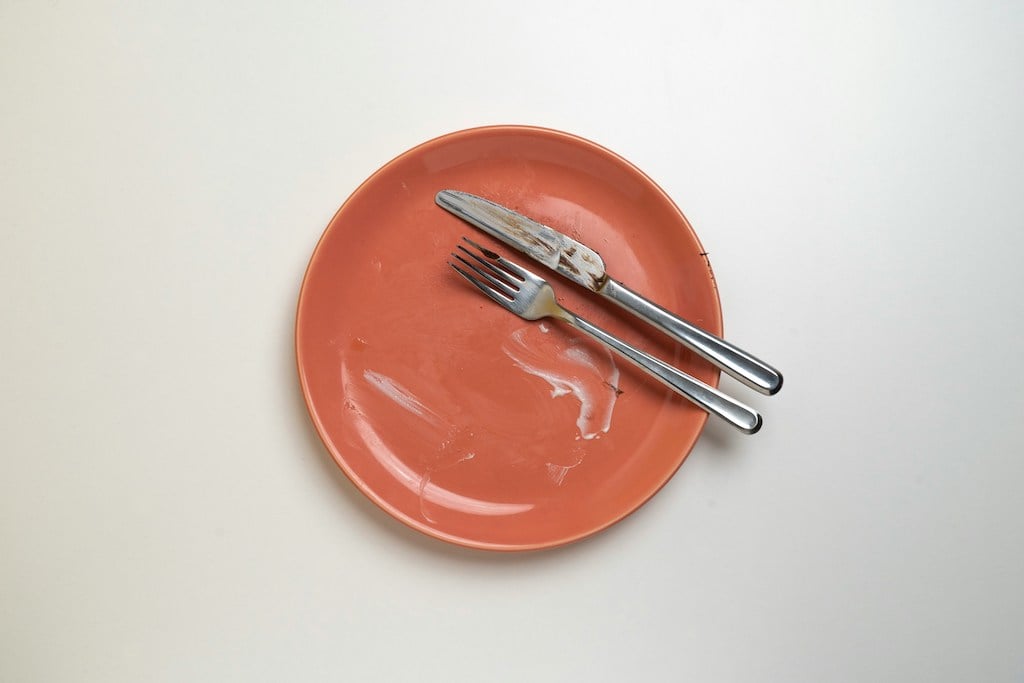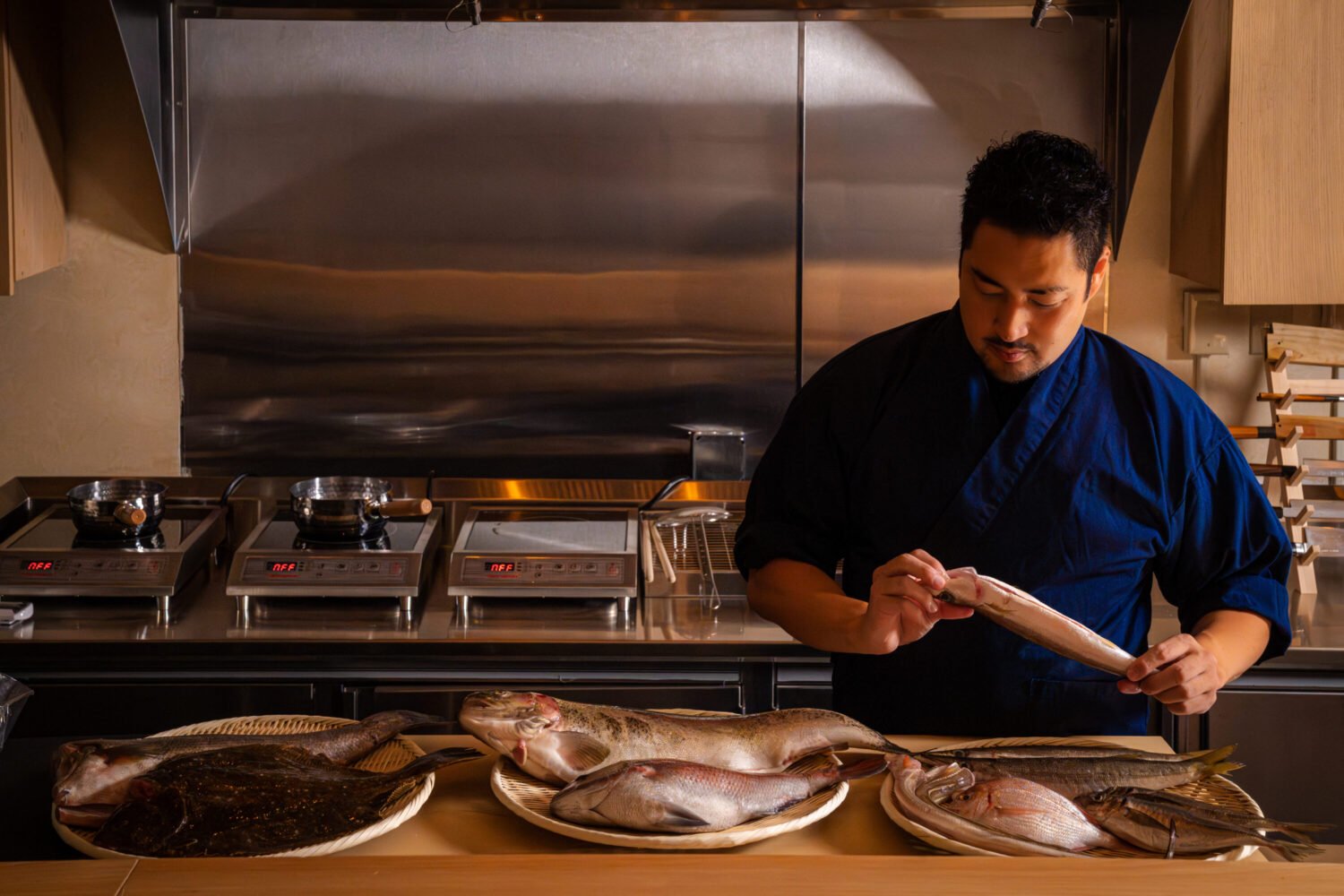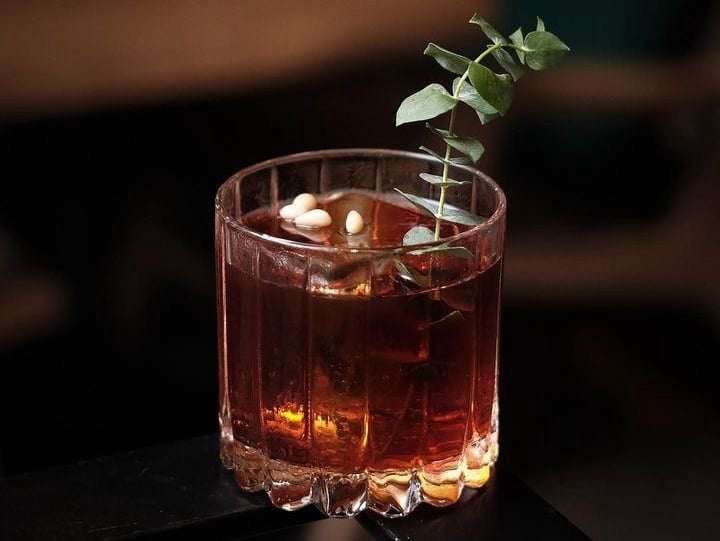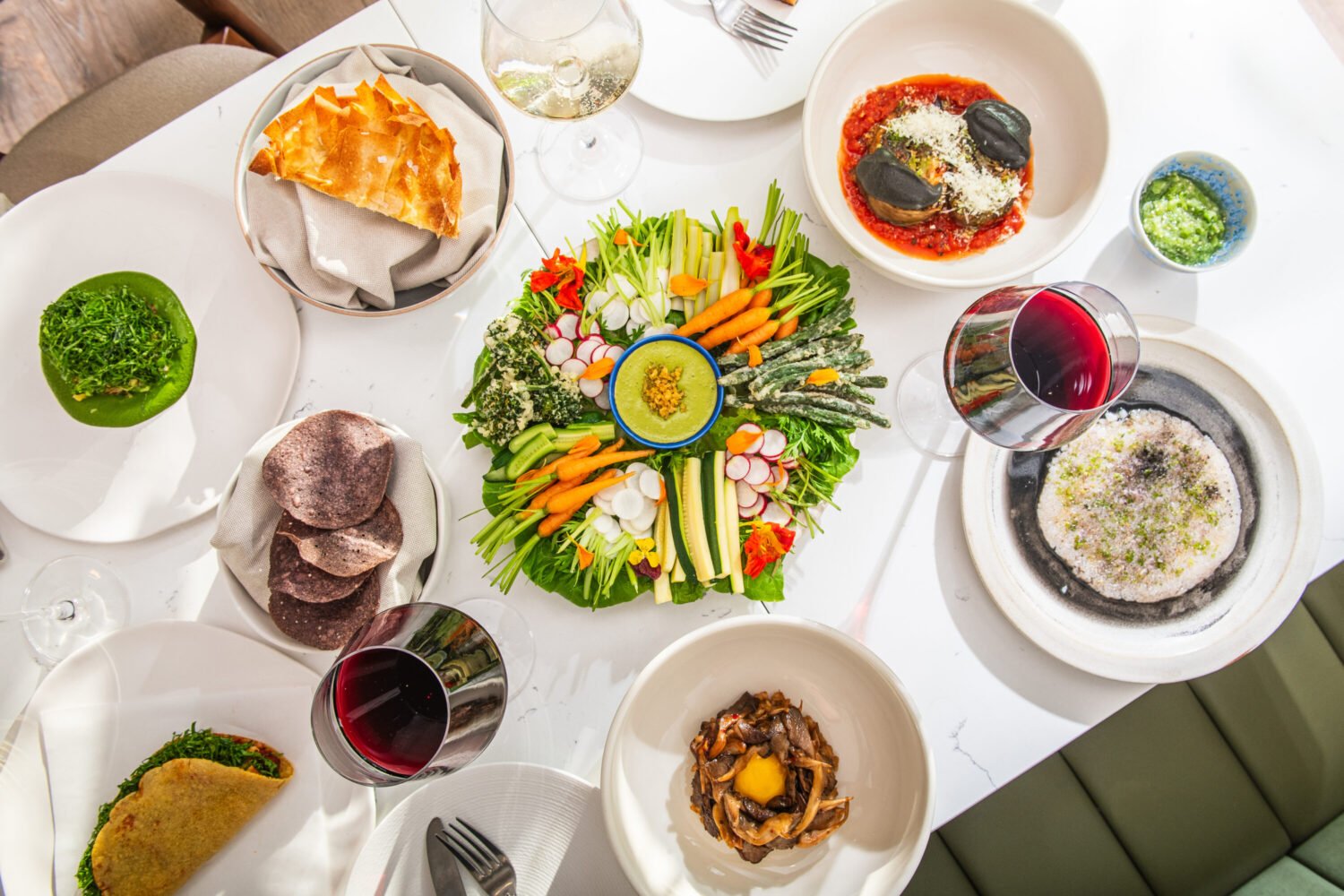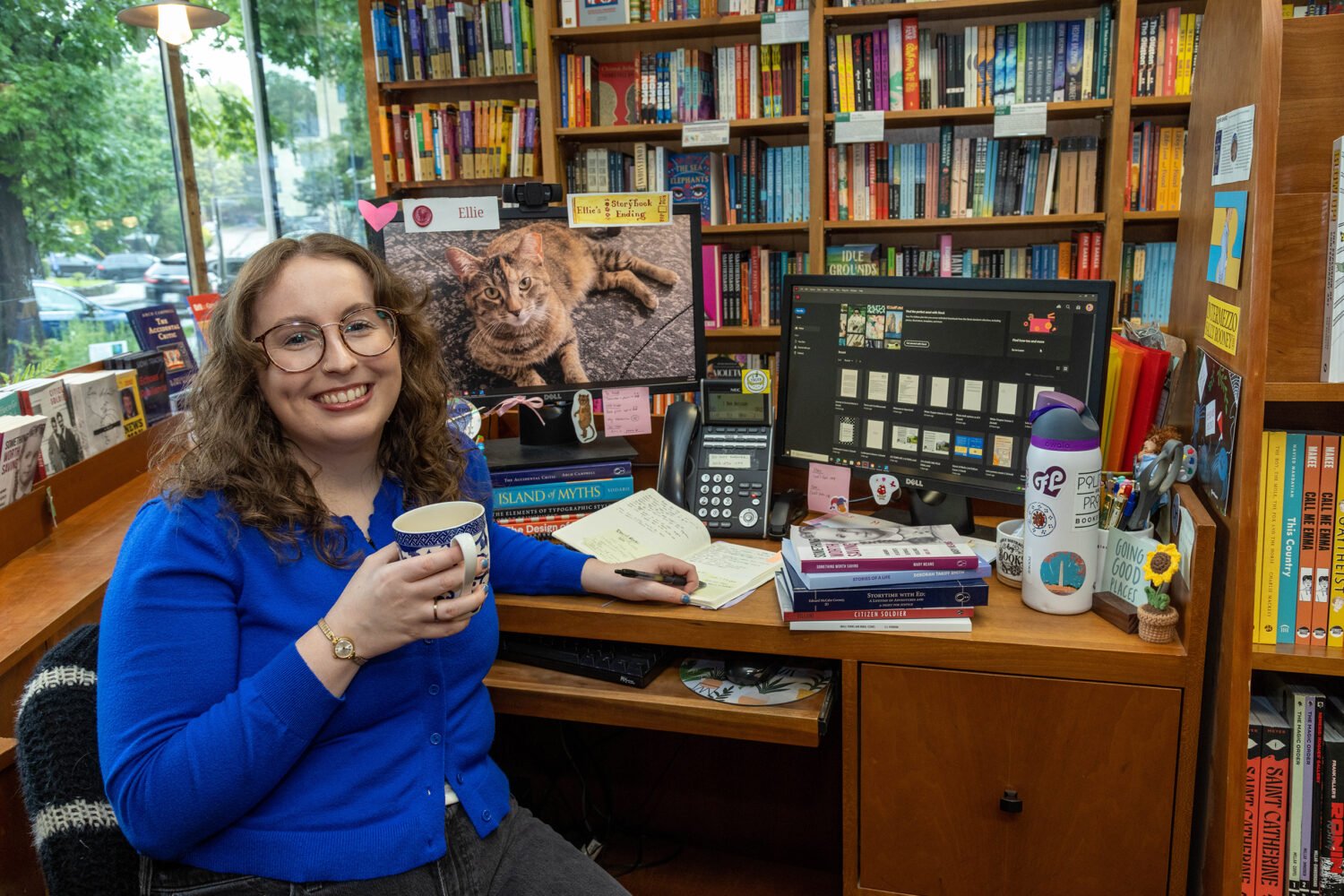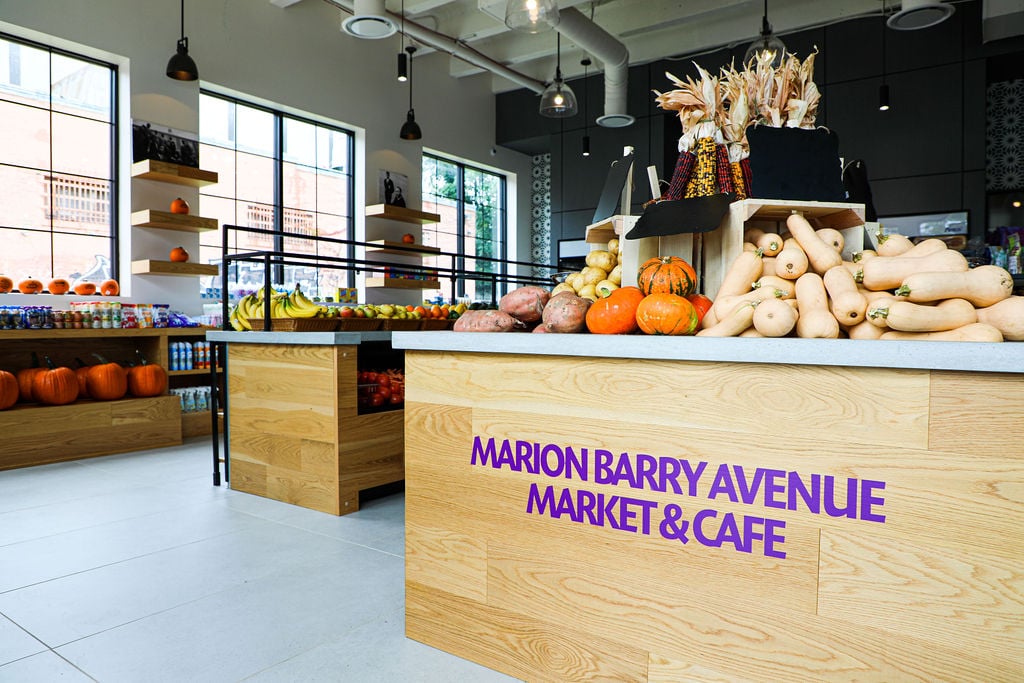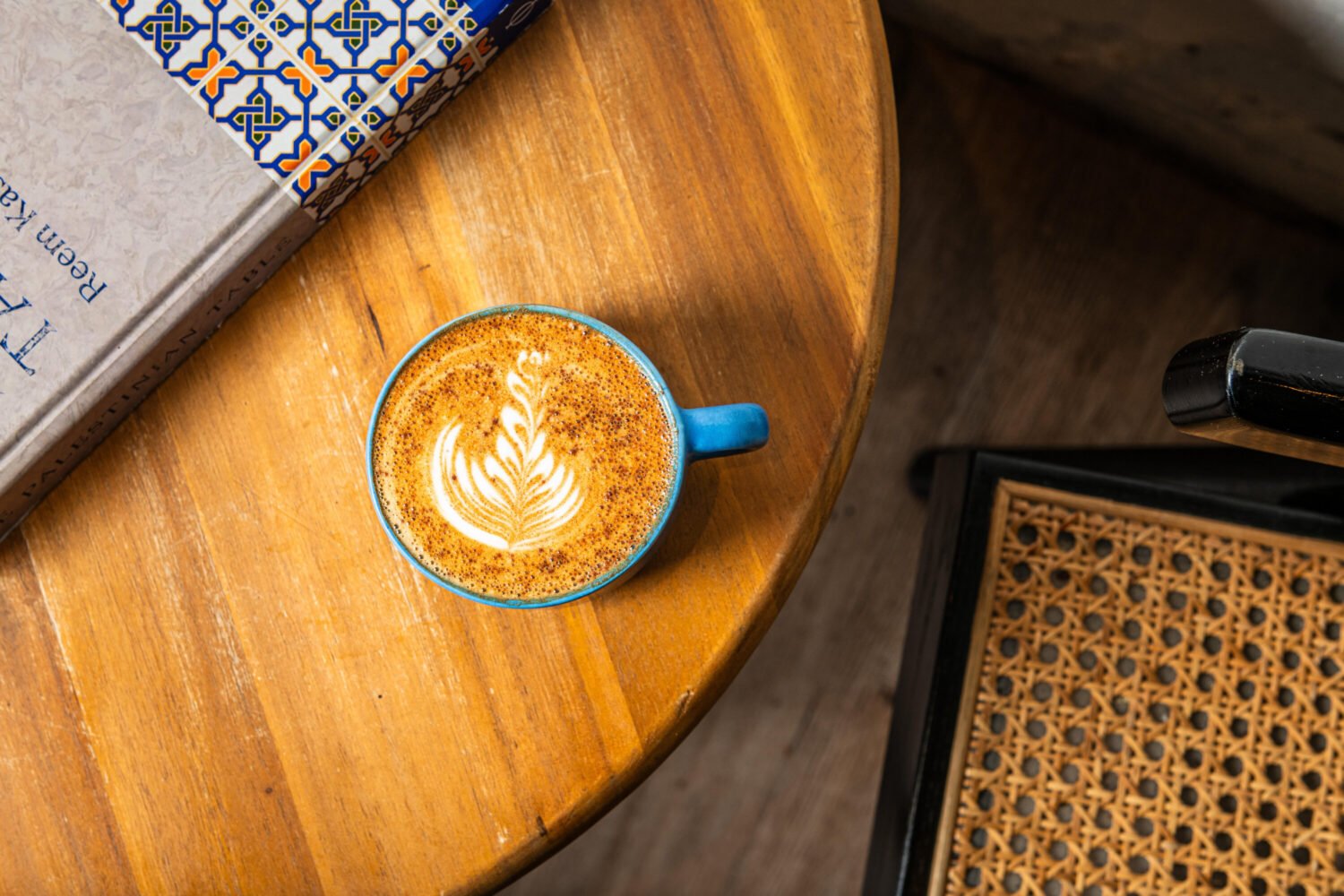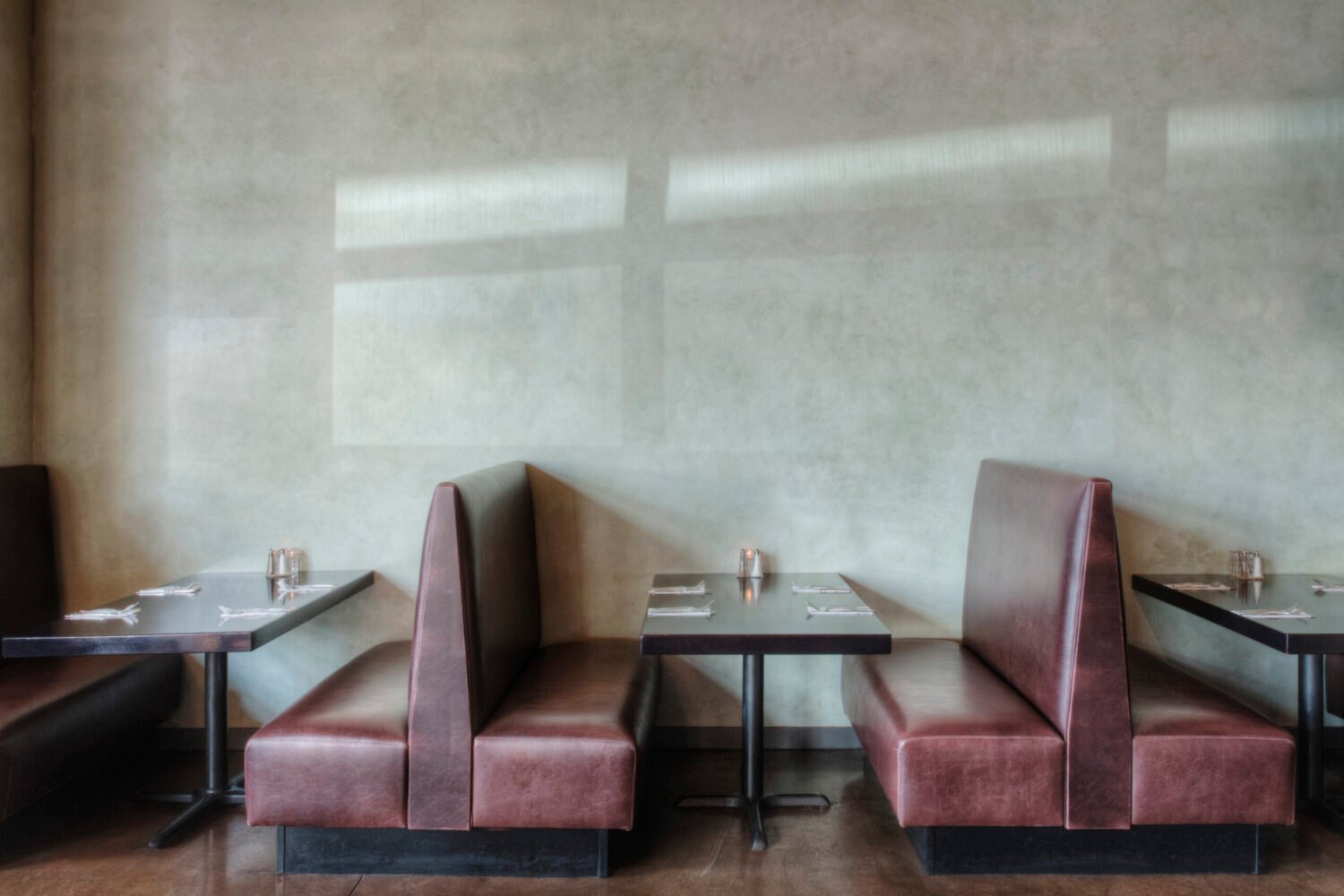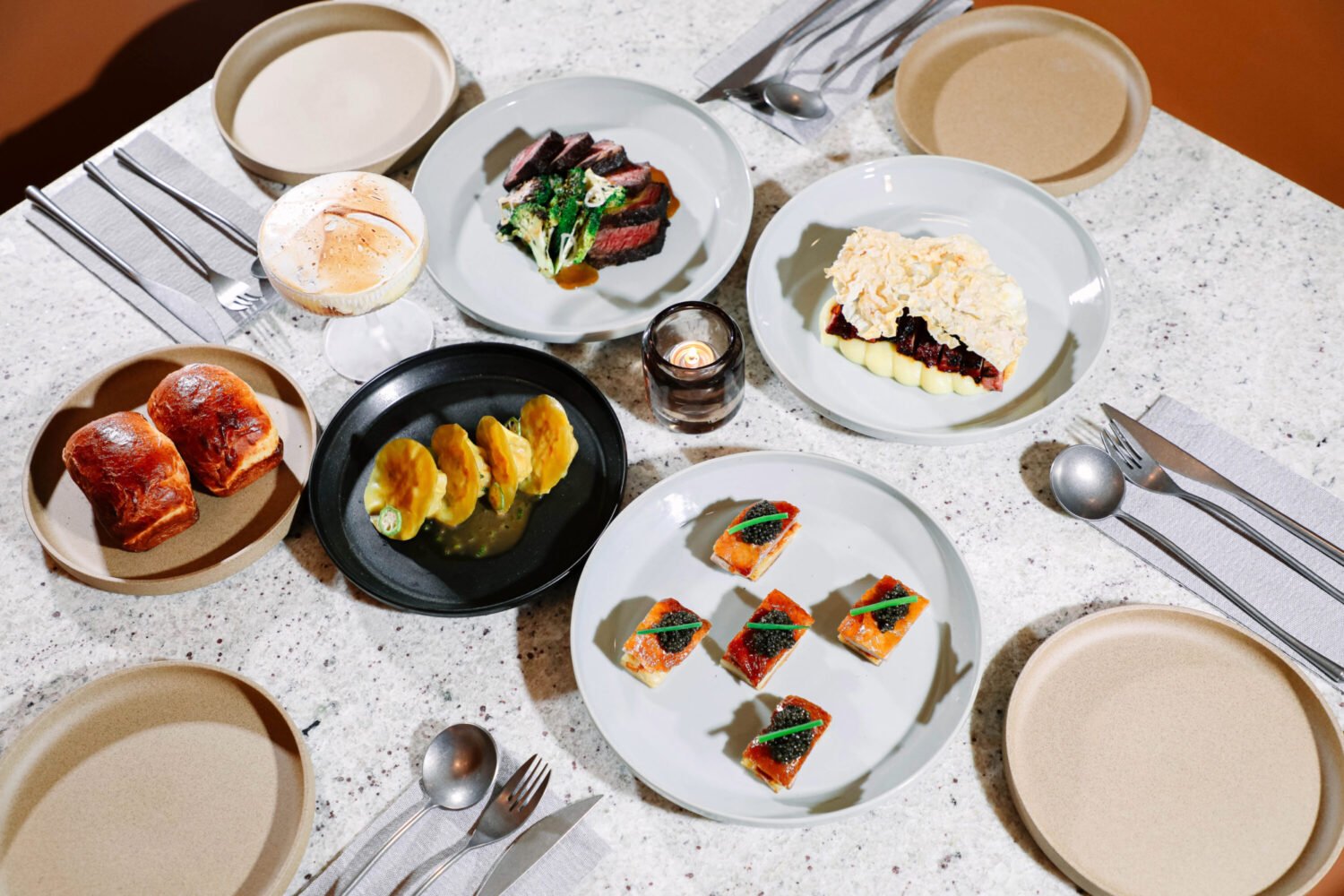Busboys and Poets owner Andy Shallal is the rare restaurateur who’s never shied away from politics. In fact, he made a brand of it. His social justice-minded restaurant, bookstore, and event space—which has eight locations across the DC area—celebrates its 20th anniversary this year.
In his new memoir, A Seat at the Table, Shallal writes about rising in the restaurant industry, struggling with his Iraqi-immigrant identity, confronting racism, and finding his tribe. He got his start as a teen in an Annandale pizza joint owned by his father, then eventually opened his first hit DC restaurants: Cafe Luna, Skewers, and Mimi’s. Shallal chronicles how he was drawn to political activism, from protesting the Gulf War between restaurant shifts in the early ’90s to convening antiwar activists in his establishments in the wake of the US invasion of Iraq in 2003.
We sat down with Shallal at his Mount Vernon Triangle restaurant to talk about how those early experiences have shaped the last two decades—from his expansion across the region to his outspokenness in the Trump era.
Your family moved to this country from Iraq when you were a kid, and you write in the book about feeling like an outsider. How has that informed the way you run your restaurants?
Ever since I got to this country, I felt like an alien on a different planet. I was 11 years old, and to top it off, I was put into a higher grade than I should have been. Trying to figure out how you fit in, the language, the cultural land mines—not only as a foreigner but as a student in a middle school being two years younger than everybody else—too many things were thrown at me. It was like, I need to find a safe space.
That kind of haunted me all my life. So I wanted to create places that I’d feel good being in, that I’d feel welcomed in.
How do you think about your identity now, all these decades later?
Well, finding my tribe was my mission from the time I came here, right? And it’s been a mixed bag. Sometimes I feel so in love with America. And sometimes I just want to find a way out. It’s really kind of scary because I don’t have anyplace [else] to go. I’ve got to make it work. I want this place to be as good as I had hoped it would be.
You’ve been combining business and politics for decades, going back to your previous restaurants, Skewers and Cafe Luna. Did it feel taboo at that time?
Yeah, it did. I mean, it still does. Sometimes more so now than any other time. The one thing I don’t want to happen to this country is for it to slip into fascism, which is real. I came from a fascist country. Iraq was Saddam Hussein. Fascism isn’t like the clouds are gray and it’s always raining and everybody’s wearing black. Sometimes the sun is shining, there’s beautiful picket fences, sunflowers everywhere, but it lurks underneath everything. I always felt like immigrants and people like myself are actually the insurance policy for democracy. We are the ones that feel it first—canary in the coal mine. I wouldn’t feel good if I wasn’t an activist.
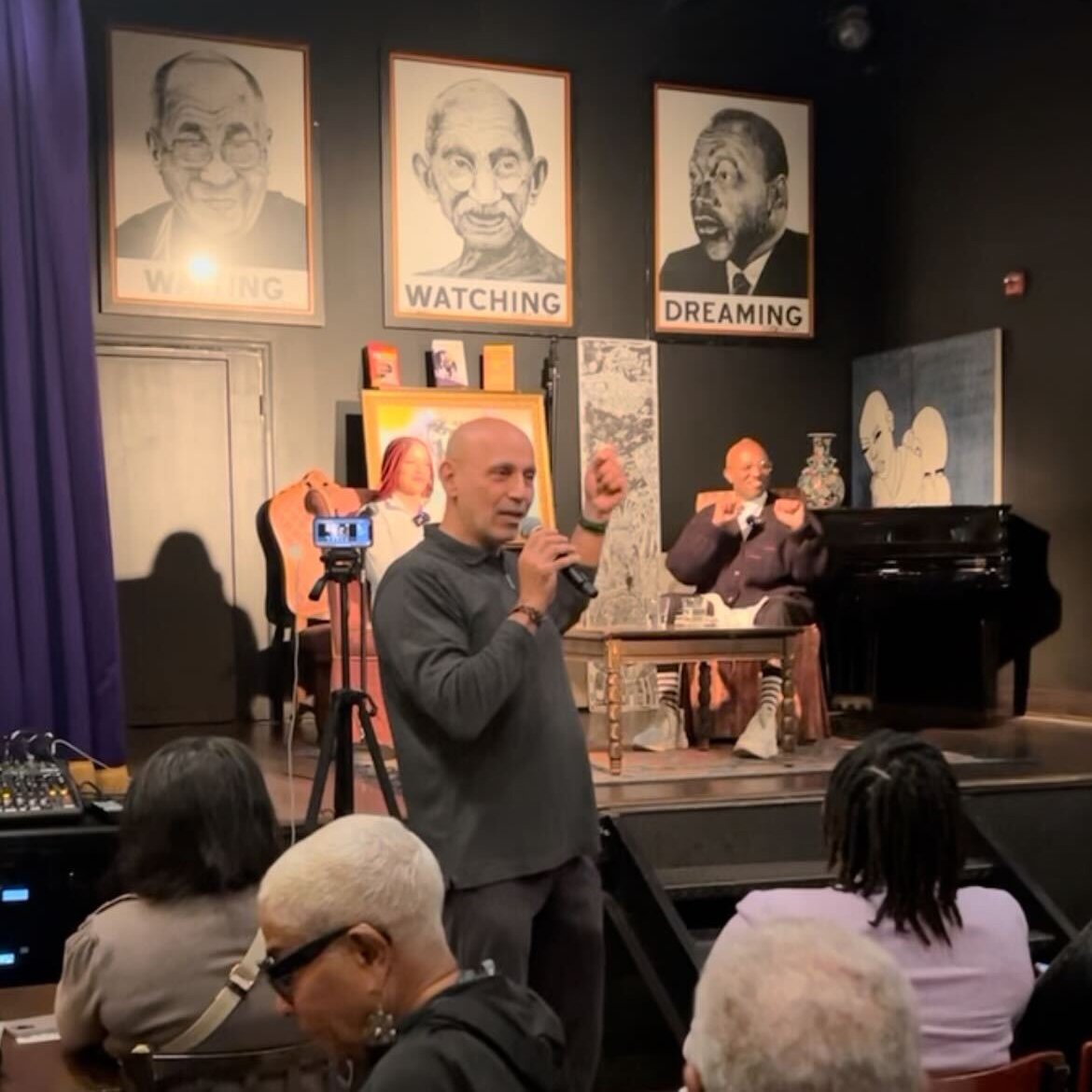
Have there been downsides to being outspoken? Has that ever come back to bite you?
During Trump’s first administration, we were hit by [Immigration and Customs Enforcement] in a very serious way. ICE came and said, ‘We want the I-9s for every employee you’ve had for the past three years.’ It happened a few months after we joined forces with other places to call out for the support of immigrants. And we closed our restaurants, all of them, for one day.
That was “A Day Without Immigrants,” when businesses around the country closed to protest Trump’s immigration policies. [Shallal was a vocal supporter of the effort.]
I was on every television station. I was on CNN. I was everywhere. And three months later, we got hit by ICE. I don’t know whether there was a correlation, but I can’t help but feel that there must have been.
It feels like businesses are more afraid than ever to say or do anything political.
You have no idea how many have come to me and said, “How do you keep speaking up? How do you have events all the time that deal with Gaza, that deal with the immigration issues, that deal with all kinds of issues that people don’t want to be near?”
What do you say to them?
I couldn’t sleep at night if I didn’t. I learned a long time ago: I can’t separate work and life. I just don’t understand what that means. I love the politics because that’s life.
The other complicating factor in this social-media age is you have online mobs and Yelp-bombing and concerns about employees getting doxxed. How do you think about that aspect?
We had a situation with a group of people who wanted to have an antiabortion fundraiser here. And, you know, we’re not antiabortion. They call themselves Democrats for Life. The person who booked them thought they were actually Democrats forever. They didn’t know what the “for life” was. We ended up canceling the event. People went a little bit insane, calling and threatening our staff. Somebody would call and say, “I’d like to order a Caesar salad with a grilled fetus.” They were just traumatizing and terrorizing our staff. This was right before Roe v. Wade was overturned.
There’s been a lot of conversation during the second Trump administration about resistance fatigue. As a longtime activist, how are you feeling?
It actually energizes me. If I’m sitting at home and I know that I could be out at a demonstration, I just don’t enjoy sitting at home. It brings joy to me to be with others. It also prevents you from getting depressed. Sometimes being with other people who feel similarly to what you feel, it makes you feel less crazy.
Where are you focusing your energy?
A lot of it is on DC stuff. I’ve really been outspoken about I-82 [the DC law that eliminates the tipped minimum wage]. I do a lot of work in Anacostia. When I first opened the Busboys and Poets in Anacostia, one of the first things that we set up was a group of activists from the community—clergy, NGO heads, businesspeople, people that do certain programs in that part of the city. It has grown to be this tremendously powerful gathering the first Monday of every month. Particularly, it’s focused on youth development and making sure kids have options so they’re not in the street hurting each other.
You’ve been one of the very few restaurateurs to be vocally supportive of Initiative 82 and eliminating the tipped minimum wage. Why?
I want to professionalize the restaurant industry. The industry has always been kind of a fallback—it’s the job you get when you don’t have any other options. I want it to be a place where people can look at it as a career. I tip well. I tip really well, but it still feels very icky to me. The tipped wage is kind of a social-justice issue. Anything progressive, I don’t want to get in the way of.
What has been your experience with your restaurants since I-82 passed?
You adjust. You constantly have to be in an adjustment mode. If you’re just stagnant, you’re going to die. I’m not denying the fact that for some restaurants [increased costs from I-82 have been] a hit, and that hurts. But I also want to say that there are ways I think that legislators can actually make things easier and better for smaller businesses.
I’m sure you saw the Restaurant Association Metropolitan Washington’s alarming survey of restaurant owners earlier this year. Forty-four percent of operators of full-service casual restaurants–places like yours–said they’re very or somewhat likely to close this year. What’s your take on the state of the restaurant industry?
I used to be on the Restaurant Association board for many years. Back in the early 2000s, there was an effort to end smoking in restaurants. The Restaurant Association put out the most frightening data you’d ever want to see. They said restaurants will lose billions, the city will lose billions of dollars in revenue, that people will just all move to Virginia because you can smoke there, that bars will have to close. It was this doom-and-gloom, “the world’s going to end” kind of scenario. And guess what happened? None of that.
I think tipping is going to be the same. Years from now, we’ll be thinking, People got paid a lesser wage and the customer decided what they make? That doesn’t make sense.
Getting back to your book: It ends, surprisingly, right after the opening night of Busboys and Poets. Why cut it off there?
The reason I made it cut off is because there’s so much that happened since then. It would have been just too long.
At the very end you write “to be continued.” Will there be a sequel?
I keep writing. I’ve got a lot of stuff about different events and things that have happened and connections I’ve made and people I love that I’ve become very close to since we opened. Sometimes when you try to write something, you get overwhelmed with how much information there is, and then you shut down. You’re just like, “I can’t do this.” So I’m trying to see: What is the arc of the story? Where am I heading? Why am I writing it? Who is my audience?
I’ve written a lot, but I just haven’t put it together. I’m thinking about putting it together. But, you know, writing a book is more difficult than most people think.
Interview has been edited for length and clarity. This article appears in the September 2025 issue of Washingtonian.

